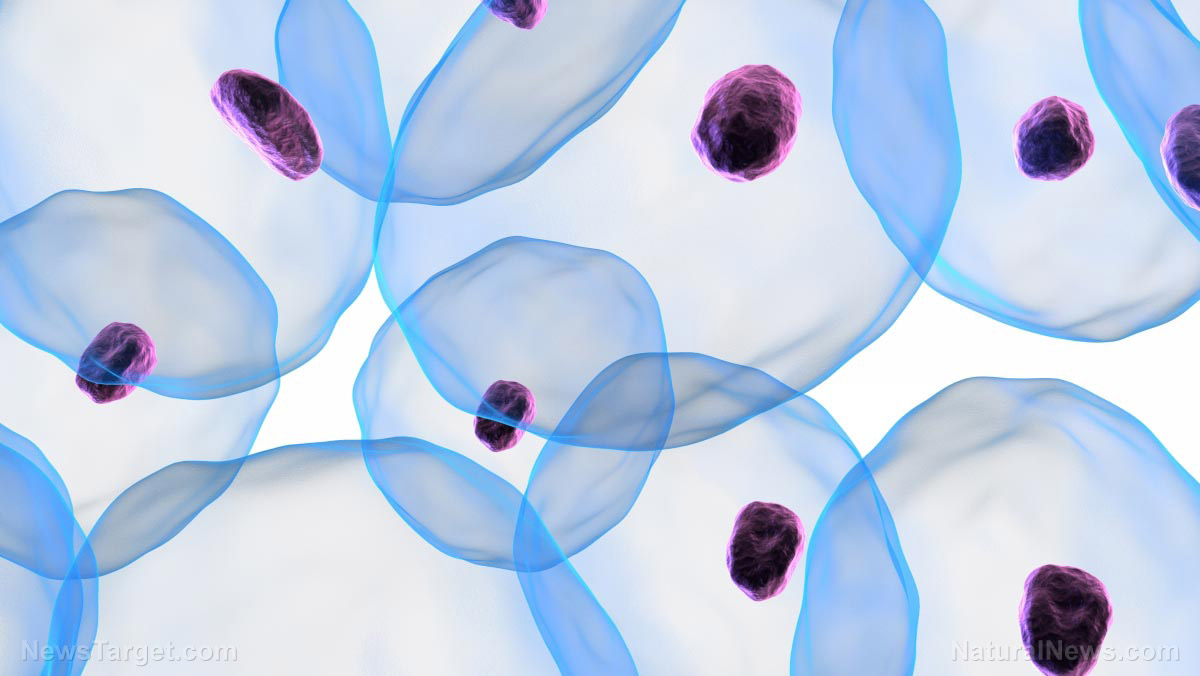Learn about brain health and nootropics to boost brain function
Researchers find a new method of using bone marrow stem cells to reverse multiple sclerosis (MS) in animal subjects

( Natural News ) Stem cell therapy, also known as regenerative medicine, is a type of treatment that harnesses the power of stem cells to promote the repair of diseased, dysfunctional or damaged tissue . Stem cells, which serve as the body’s raw materials, are the earliest form of all cells in the human body.
Prior to their maturation into specialized units (i.e., kidney cells, nerve cells, etc.), stem cells have an unlimited capacity for self-renewal, which makes them promising solutions to health conditions that require extensive healing. Besides cancer, other diseases for which stem cell therapy is used are autoimmune diseases and neurodegenerative diseases.
In a recent study, researchers from the University of California, Irvine (UCI), the University of Gothenburg in Sweden, Shanghai Jia Tong University and the Translational Genomics Research Institute in Arizona developed a cell-free therapy that makes use of exosomes produced by stem cells for the treatment of autoimmune and central nervous system (CNS) disorders.
They reported that this nanotherapeutic product was able to reduce symptoms in a mouse model of autoimmune encephalomyelitis (EAE), a type of inflammatory disease characterized by immune cells attacking healthy cells and tissue in the brain or spinal cord. The researchers discussed their findings in an article published in the journal ACS Nano . What are autoimmune and neurodegenerative diseases?
Autoimmune diseases refer to conditions in which the immune system mistakenly attacks organs or tissue because it fails to recognize them as parts of the body. Areas commonly affected by autoimmune attacks include the blood vessels, connective tissues, endocrine glands (e.g., thyroid or pancreas), joints, muscles, red blood cells or the skin. While the exact cause of immune malfunctioning is still unknown, there is evidence suggesting that some people are genetically predisposed to develop certain autoimmune disorders , such as Type 1 diabetes, Sjogren’s syndrome , Graves disease or ulcerative colitis .
Neurodegenerative diseases, on the other hand, arise from the progressive degeneration of cells that belong to the central and peripheral nervous systems. Unlike other cells in the body, nerve cells or neurons are incapable of reproducing or replacing themselves. Hence the loss of these cells has serious consequences, especially for the brain. Depending on the types of neurons affected, neurodegenerative diseases can lead to problems with either movement (ataxia) or cognition ( dementia ). Cell-free nanotherapeutics for autoimmune and CNS disorders
According to Weian Zhao, an associate professor at UCI and senior author of the study, stem cell therapies for autoimmune and neurodegenerative diseases often produce mixed results in clinical trials, partly due to a lack of understanding on the part of researchers about how these treatments are supposed to work.
Previously, stem cells harvested from the bone marrow of an individual and cultured in labs are directly injected into the veins as part of the therapy. Prior to injection, these cells, called mesenchymal cells (MSCs), are first activated with the immune protein, interferon-gamma (IFN- y ), to ensure their efficacy and prevent stem cell differentiation .
However, these injected cells often fail to reach their target sites because they get trapped in filter organs. To circumvent this, Zhao and his team decided to extract nano-sized particles called exosomes from MSCs and inject them instead of whole cells into mice with EAE — a disease that closely resembles multiple sclerosis . (Related: Natural strategies to beat multiple sclerosis .)
These exosomes — extracellular vesicles secreted by cells — are not only able to pass through the blood-spinal cord barrier easily, they are also loaded with anti-inflammatory and neuroprotective RNAs and proteins, which the researchers hoped would be enough to address the symptoms of EAE. They reported that besides reducing the mean clinical scores of mice with EAE, the exosomes also decreased nerve damage by reducing inflammation and restored normal function to the animals’ immune systems.
“These results,” said the researchers in their report, “not only shed light on stem cell therapeutic mechanisms but also provide evidence that MSC-derived exosomes can potentially serve as cell-free therapies in creating a tolerogenic immune response to treat autoimmune and central nervous system disorders.”
Learn more about autoimmune and neurodegenerative diseases at Health.news .
Source include:
HSS.edu
Read more at www.naturalnews.com